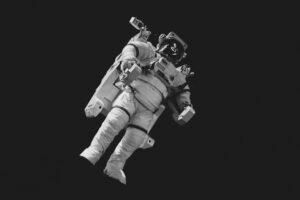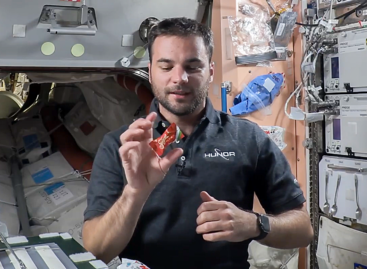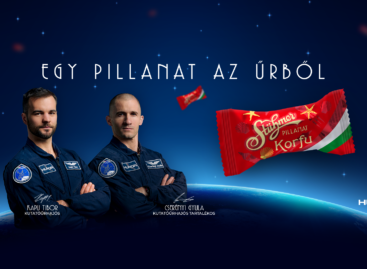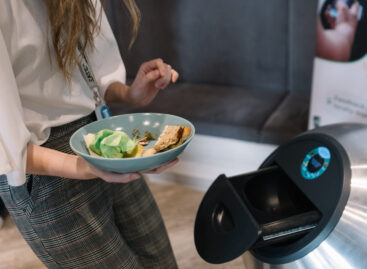This is what Tibor Kapu eats in space
Forty-five years after Bertalan Farkas’ space flight, a Hungarian astronaut is once again in space: Tibor Kapu is working on the International Space Station as part of Axiom Mission 4. Although the scientific and technological significance of the mission is unquestionable, the question of how people eat in space – and what a Hungarian astronaut eats when he is homesick in weightlessness – writes Agrárszektor.
Not just calories: science behind the menu
 Nutrition in space goes far beyond simple calorie supplementation. Dietitians at space agencies – such as NASA or ESA – work with precise calculations, taking into account the specifics of the microgravity environment. In addition to adequate nutrient intake, supporting the immune system, preventing bone and muscle loss, and, last but not least, maintaining psychological well-being are also key.
Nutrition in space goes far beyond simple calorie supplementation. Dietitians at space agencies – such as NASA or ESA – work with precise calculations, taking into account the specifics of the microgravity environment. In addition to adequate nutrient intake, supporting the immune system, preventing bone and muscle loss, and, last but not least, maintaining psychological well-being are also key.
The food is freeze-dried or powdered, so it can be stored for a long time and can be easily consumed by adding water. Liquids are stored in special underseat bags with an internal separator so that they do not float away in weightlessness. Crumbly or perishable foods – such as bread or apples – are on the banned list: the crumbs of the former can be dangerous for technical systems, the latter deteriorate too quickly and cannot be washed properly.
The soul of space food: taste, comfort and coziness
In space, the sense of taste changes, the sense of smell becomes dull, and the enjoyment of food decreases. That is why chefs are increasingly being involved in the development of space food – not only for the sake of variety, but also for the sake of psychological support. For example, Tibor Kapu was able to take Strong Pistachio, Red Gold, milk rice, cinnamon rolls on board with him at his own request – and even “Hungarian” space chocolate was made especially for him.
However, the role of sweets is minimal – the main emphasis is on a balanced macronutrient ratio. Currently, terrestrial ratios are used, but more and more research suggests that dietary protocols adapted to the space environment may be more effective.
More calories, less muscle loss
An astronaut’s energy needs are higher than those of his Earthly counterpart. While the average man requires 2,500 calories per day, an astronaut consumes 3,000–3,200 calories per day, since in weightlessness the muscles do not work to support the body – this leads to faster muscle and bone loss. Increased protein intake is therefore of paramount importance.
Related news
The Stühmer Moment Corfu has arrived in space!
🎧 Hallgasd a cikket: Lejátszás Szünet Folytatás Leállítás Nyelv: Auto…
Read more >Related news
Atmedia adds BBC Earth to its international portfolio in Hungary
🎧 Hallgasd a cikket: Lejátszás Szünet Folytatás Leállítás Nyelv: Auto…
Read more >Discover the solutions of the future on Startup Island! (Part 2)
🎧 Hallgasd a cikket: Lejátszás Szünet Folytatás Leállítás Nyelv: Auto…
Read more >Henkel Hungary: Strong bond on and off the pitch
🎧 Hallgasd a cikket: Lejátszás Szünet Folytatás Leállítás Nyelv: Auto…
Read more >







